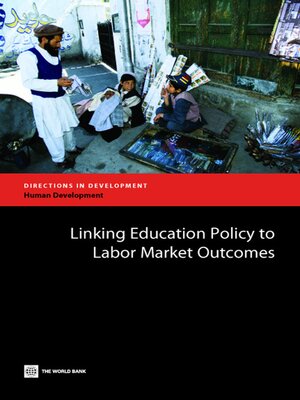Linking Education Policy to Labor Market Outcomes
ebook ∣ Directions in Development--Human Development
By Tazeen Fasih

Sign up to save your library
With an OverDrive account, you can save your favorite libraries for at-a-glance information about availability. Find out more about OverDrive accounts.
Find this title in Libby, the library reading app by OverDrive.



Search for a digital library with this title
Title found at these libraries:
| Library Name | Distance |
|---|---|
| Loading... |
'Linking Education Policy to Labor Market Outcomes' examines current research and new evidence from Ghana and Pakistan—representative of two of the poorest regions of the world—to assess how education can increase income and help people move out of poverty. This study indicates that in addition to early investments in cognitive and noncognitive skills—which produce a high return and lower the cost of later educational investment by making learning at later ages more efficient—quality, efficiency, and linkages to the broader macro-economic context also matter. Education and relevant skills are still the key determinants of good labor market outcomes for individuals. However, education policies aimed at improving skills will have a limited effect on the incomes of that skilled workforce or on the performance of a national economy if other policies that increase the demand for these skills are not in place. For education to contribute to national economic growth, policies should aim at improving the quality of education by spending efficiently and by adapting the basic and postbasic curricula to develop the skills increasingly demanded on the global labor market, including critical thinking, problem solving, social behavior, and information technology.







